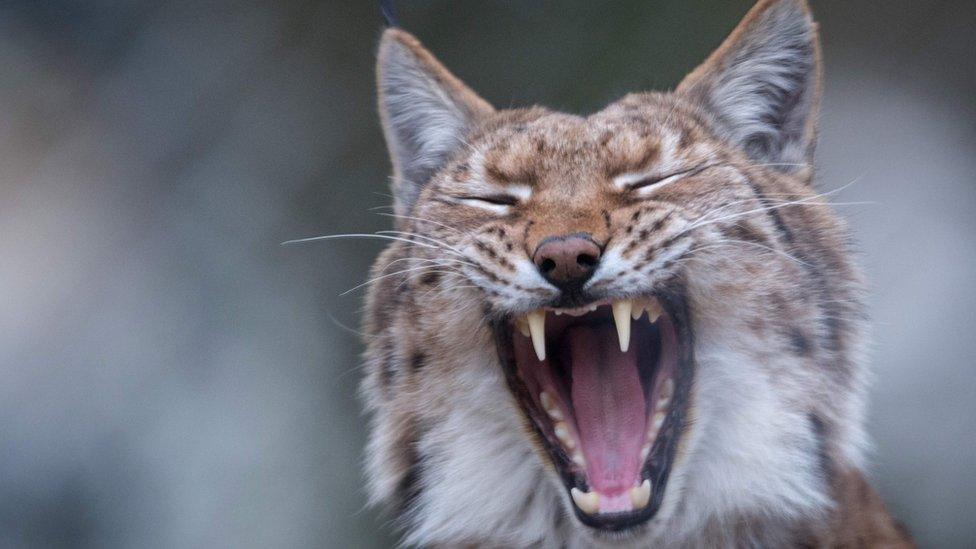Northumberland lynx trial officials hope to 'allay fears'
- Published
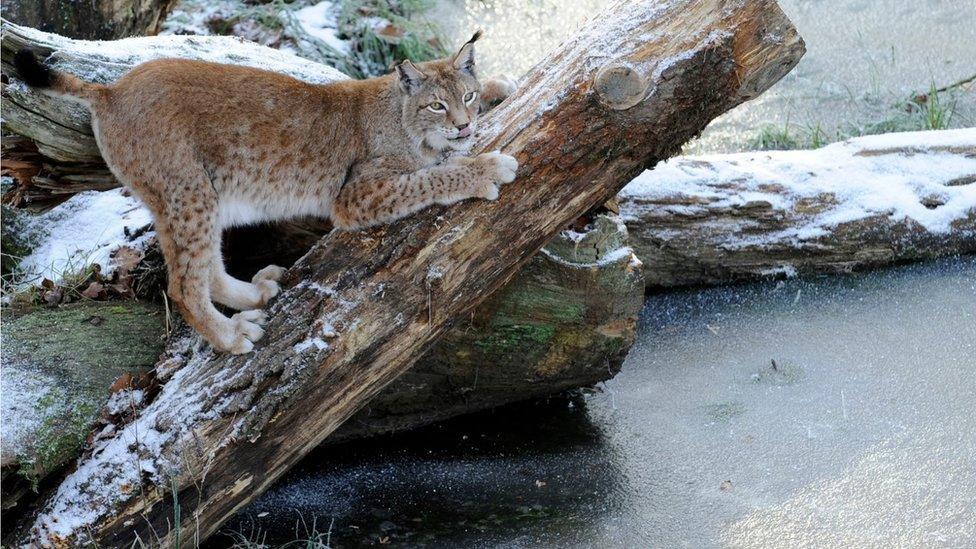
Wild lynx have been extinct in the UK for 1,300 years after being hunted for their fur
A group which is attempting a second bid to reintroduce lynx to a forest says it hopes it has allayed people's fears about the wildcats.
Lynx UK Trust has halved the number of animals it hopes to release in Kielder, Northumberland, from six to three.
It applied to release Eurasian wildcats in 2018 but the government rejected the plan saying it lacked "depth".
However, the trust said it had now addressed concerns and would submit a second application in April.
Director of Lynx UK Trust Dr Paul O'Donoghue is holding a question and answer session, external at 18:00 GMT to explain how the original plan had been modified to allay concerns.
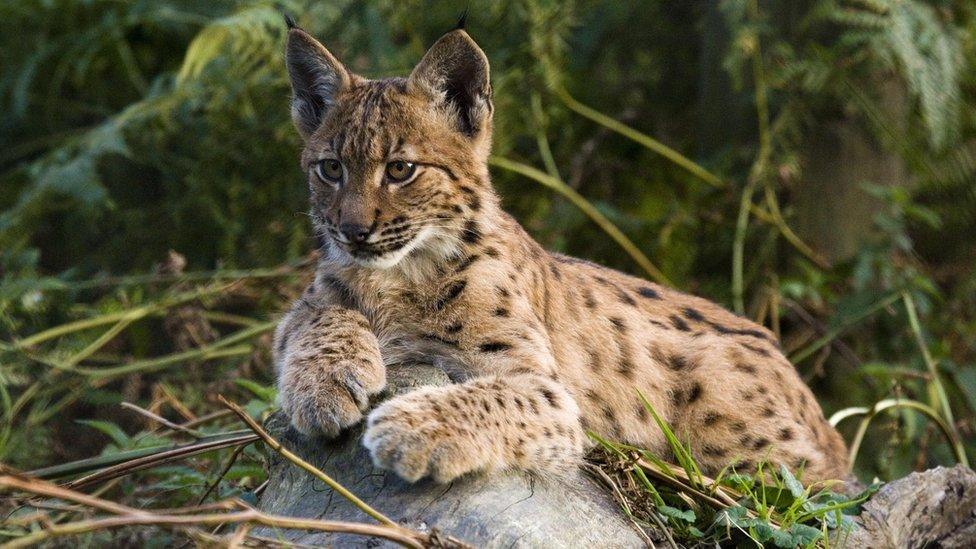
The Lynx UK Trust said the animals would keep the deer population in check
He said the original trial had been reduced from a planned five to three years and the team tracking them in an area of 700 sq km had increased from five to nine employees.
"People haven't lived among lynx [in the UK] for more than 1,300 years so we are totally sympathetic to concerns and that's why we've addressed them and scaled back to provide assurances," he explained.
"It is a fully reversible plan - the lynx can be captured at any time although we do not think this will be necessary. There have been no reported attacks of lynx on humans anywhere in the world.
"I'm not saying that lynx are the silver bullet but they will certainly help restore ecosystems."
He added lynx were medium-sized cats, similar in size to a "skinny Labrador", and in some parts of Europe they were called "ghost cats" because they were rarely seen.
He said that they would help reduce deer numbers, which would reduce damage to the forest, and provide eco-tourism opportunities.
However, the National Sheep Association (NSA) said lynx would prey on "easy meals" such as sheep and red squirrels.
Hunted for fur
Sheep farmers oppose the move amid fears of their livestock being attacked by the predators.
They said even one sheep being attacked could cause stress and damage to entire flocks.
Historically lynx were hunted for their fur and became extinct in the UK in about AD700.
The original application was submitted to conservation agency Natural England which was then asked to provide advice to the Department for Environment, Food and Rural Affairs.
The then Environment Secretary Michael Gove said the body had concluded the plan "lacked necessary depth and rigour", external.
The NSA said: "We know, talking to other farmers, in Europe that lynx can go rogue. They are opportunistic hunters eating sheep and nesting birds - an easy meal.
"Is it fair to consciously introduce an animal we know will tear apart livestock?".

Follow BBC North East & Cumbria on Twitter, external, Facebook, external and Instagram, external. Send your story ideas to northeastandcumbria@bbc.co.uk, external.
- Published9 February 2021
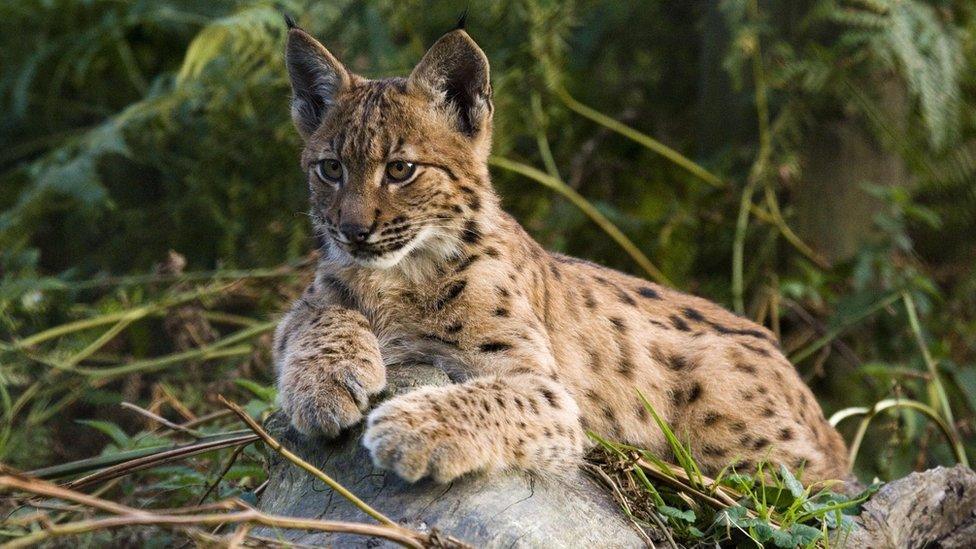
- Published17 August 2020
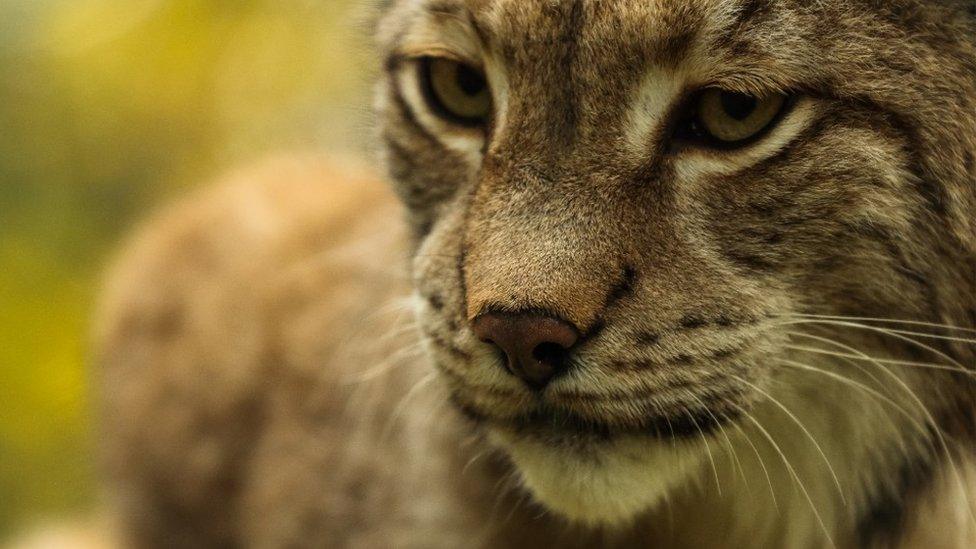
- Published4 December 2018

- Published9 August 2018
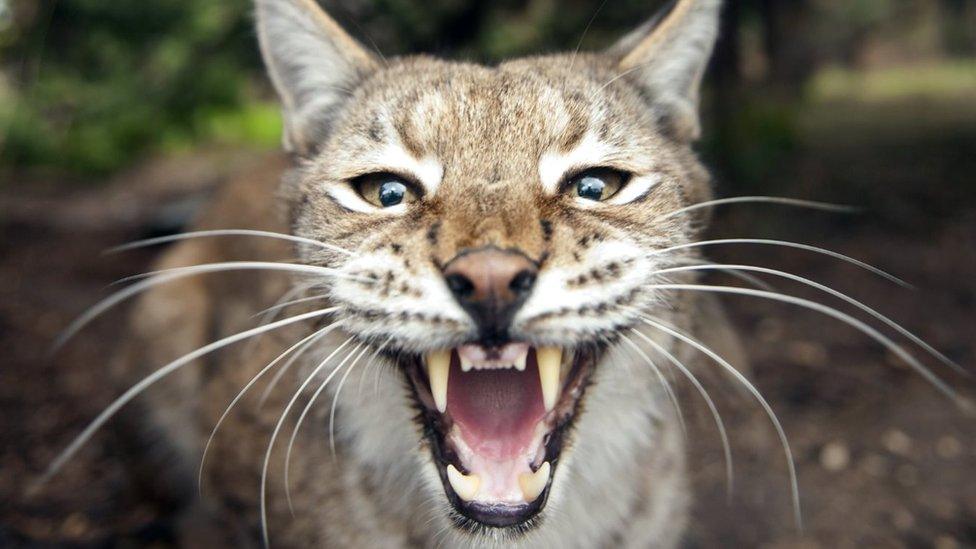
- Published17 July 2017
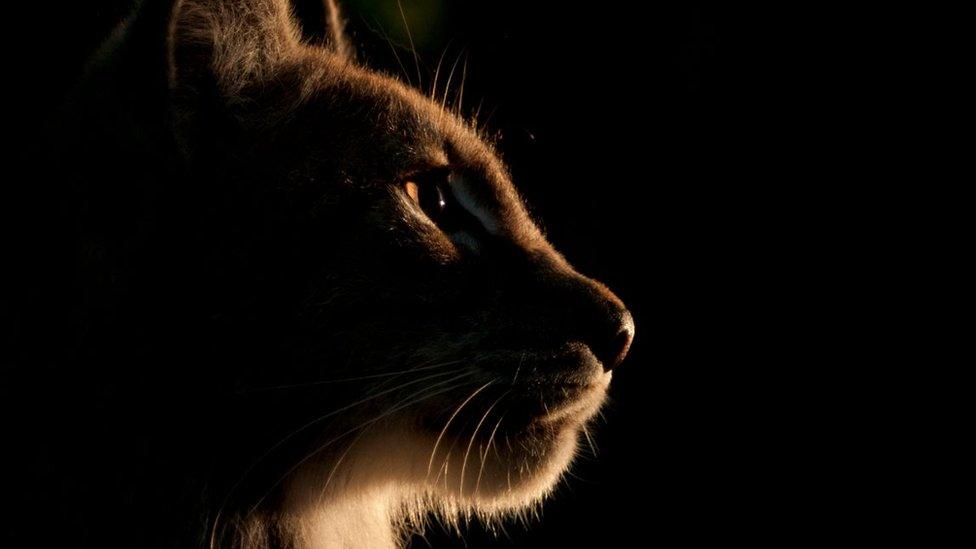
- Published26 September 2016
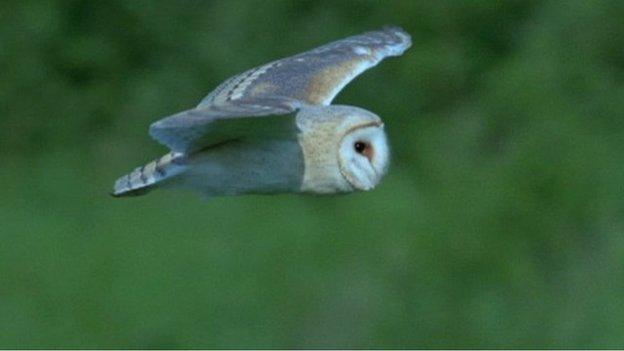
- Published21 September 2016
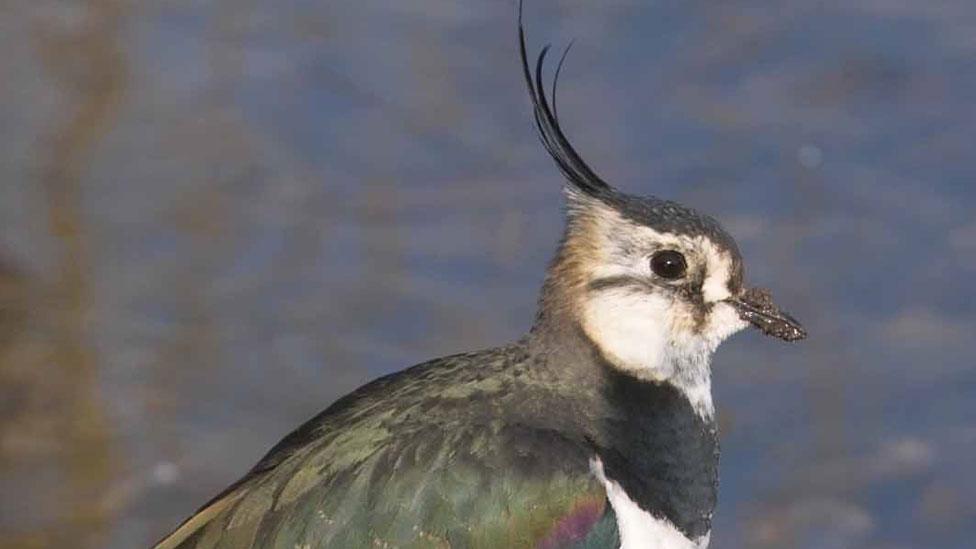
- Published9 April 2016
